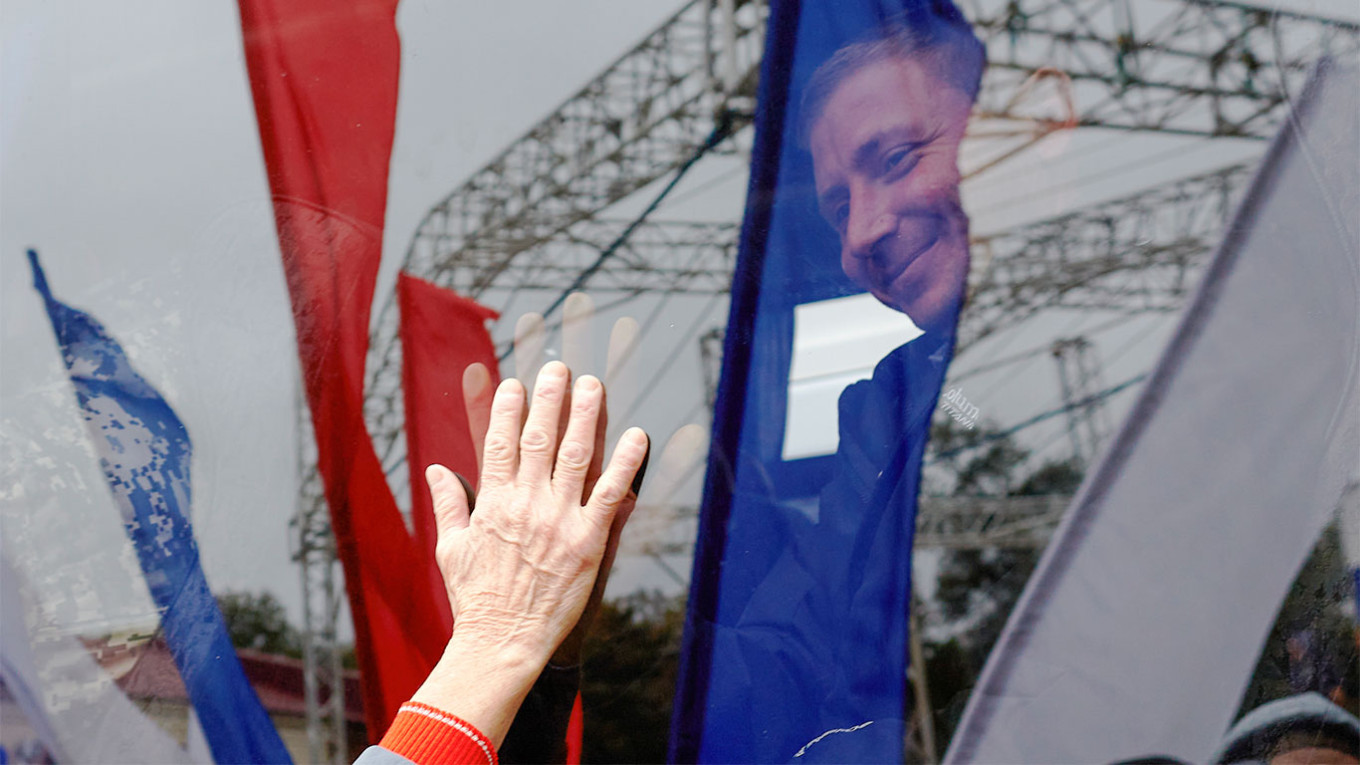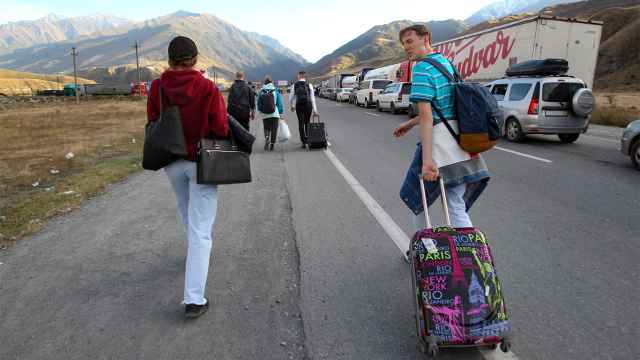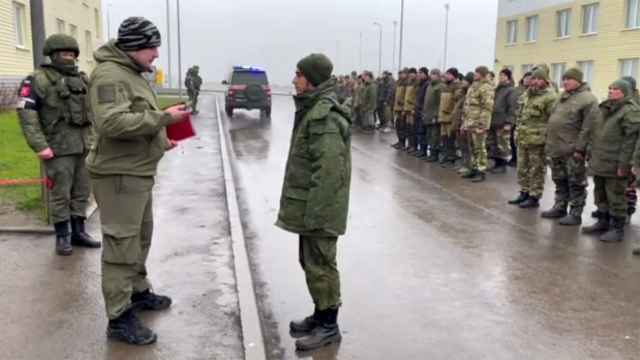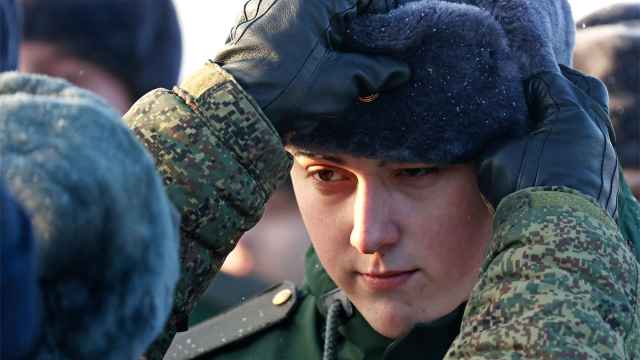Relatives of Russian draftees on the frontline in Ukraine have been protesting the treatment of their loved ones and accusing local officials of “betrayal” as news of combat conditions and casualty rates trickles back to towns and cities across the country.
While anger appears to be growing, it is for now directed primarily at regional governors and the Defense Ministry — not Kremlin officials or President Vladimir Putin.
“Draftees were not supposed to be on the frontline, but they were sent there like cannon fodder,” said Kristina, the wife of one mobilized soldier fighting in Ukraine.
Hundreds of relatives — mostly mothers and wives — have protested across Russia in recent weeks, demanding the authorities withdraw mobilized men from the front. They are usually motivated by desperate phone calls from their sons, fathers, husbands or brothers imploring them for help to escape from unequal battles with the Ukrainian army.
“People are being sent to be slaughtered,” Kristina’s mobilized husband from the Kursk region told her last week in a recorded phone call that she shared with The Moscow Times.
“We started a riot when the battalion commander wanted to send us [to the frontline]. The f***ing Defense Ministry, f***ing put pressure on them. Please, help us!”
This month alone, demonstrations by desperate relatives have been held in St. Petersburg; the cities of Voronezh and Penza south of Moscow; Vladimir, northwest of Moscow; and the northern city of Vologda.
The brother of one mobilized man currently fighting in Ukraine told The Moscow Times that most of his brother’s unit had been wiped out.
“Our guys are simply… bait for Ukrainians — they are constantly under artillery fire. Only 15% of their group is left alive and they are not even allowed to retreat or to regroup,” said the man, who requested anonymity to speak freely. “The military betrayed us.”
About 50,000 men who were called up in Russia’s “partial” mobilization of reservists this fall are currently fighting on the frontlines, Putin said last week.
While Russia does not release official figures for deaths of military personnel in Ukraine, independent estimates suggest well over a hundred of these draftees have already been killed.
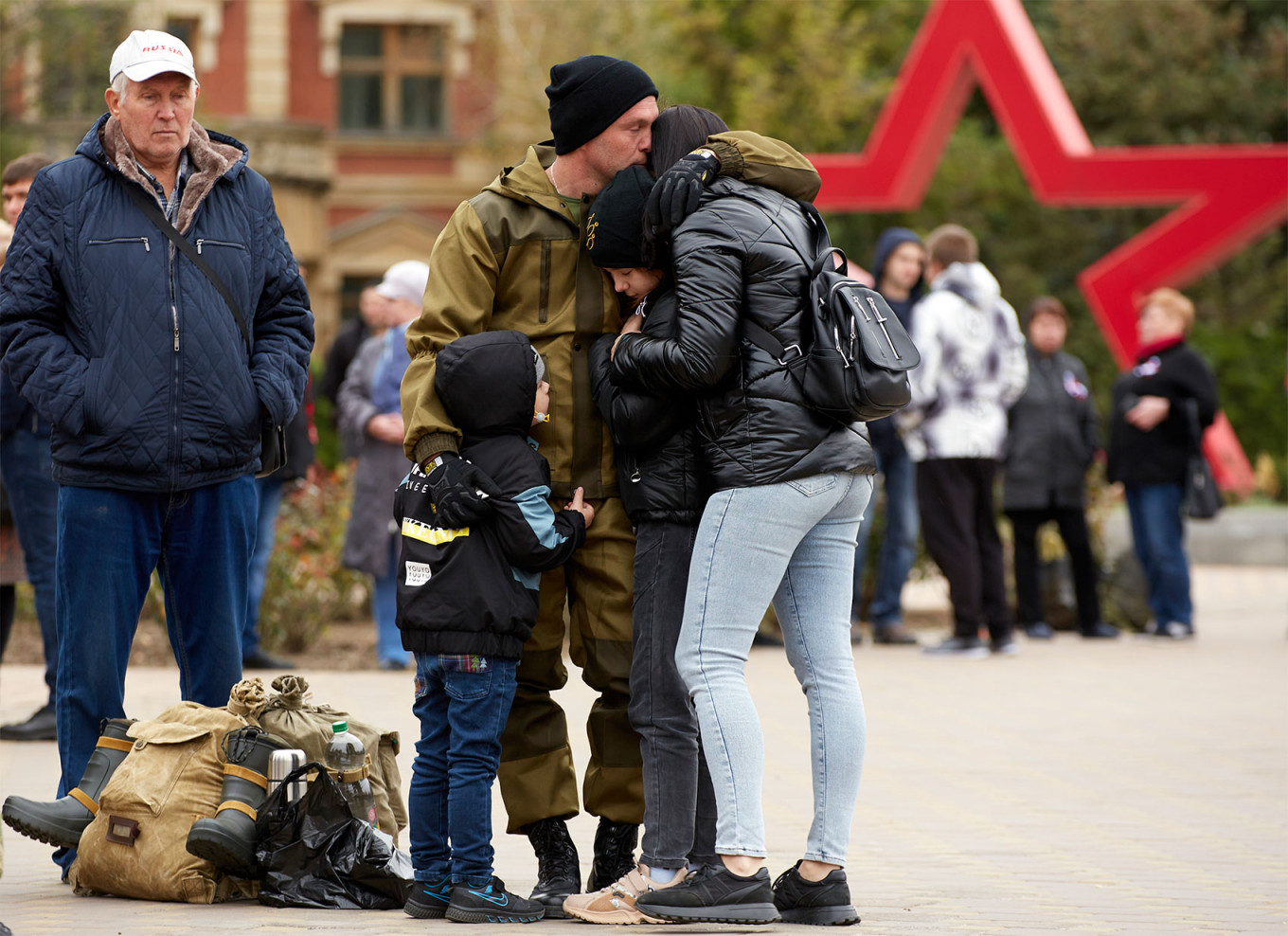
“Bring back our husbands and sons from that hell!” Yelena Kuznetsova, whose husband was mobilized last month, said last week in a video petition to authorities in her hometown of Vologda about 500 kilometers northeast of Moscow.
Relatives say they are particularly angry about limited training and the poor equipment provided for conscript soldiers, as well as the fact that new recruits are being sent into battle, rather than being used in supporting roles.
Irina from the Volga River city of Tolyatti launched a petition this month asking Putin to bring draftees, including her husband, back from the frontlines.
“When men were drafted the authorities promised not to send them into the thick of things. Now we are hearing the news that our mobilized men are in assault positions,” Irina, who declined to provide her surname, told The Moscow Times.
“Mobilized men should be on the second or third line of defense,” she said.
So far, Irina’s petition has been signed by 34,000 people.
Russia’s “partial” mobilization aimed to reverse its severe manpower shortages in Ukraine, where it has suffered a series of painful defeats — most recently the retreat from the right bank of the Dnipro River and the abandonment of Kherson city.
But observers argue that sending thousands of reservists into the line of fire will do little to aid Russia’s chances of seizing territory.
One military unit consisting of mobilized men suffered a bloody defeat in a battle in Ukraine’s Luhansk region last week, with only 41 of 570 soldiers surviving, independent media outlet Verstka reported earlier this month.
Russia’s chaotic mobilization drive has been characterized since its start by images of newly mobilized soldiers housed in crowded conditions and reports of ineffective training, a lack of food and troops sent to the frontlines with old or defective equipment.
“There is no weaponry, no equipment at all,” Kristina’s draftee husband said in the recorded phone call shared with The Moscow Times.
Alexander Karavanov, from the Vologda region, even went to eastern Ukraine to deliver humanitarian aid to his mobilized son himself.
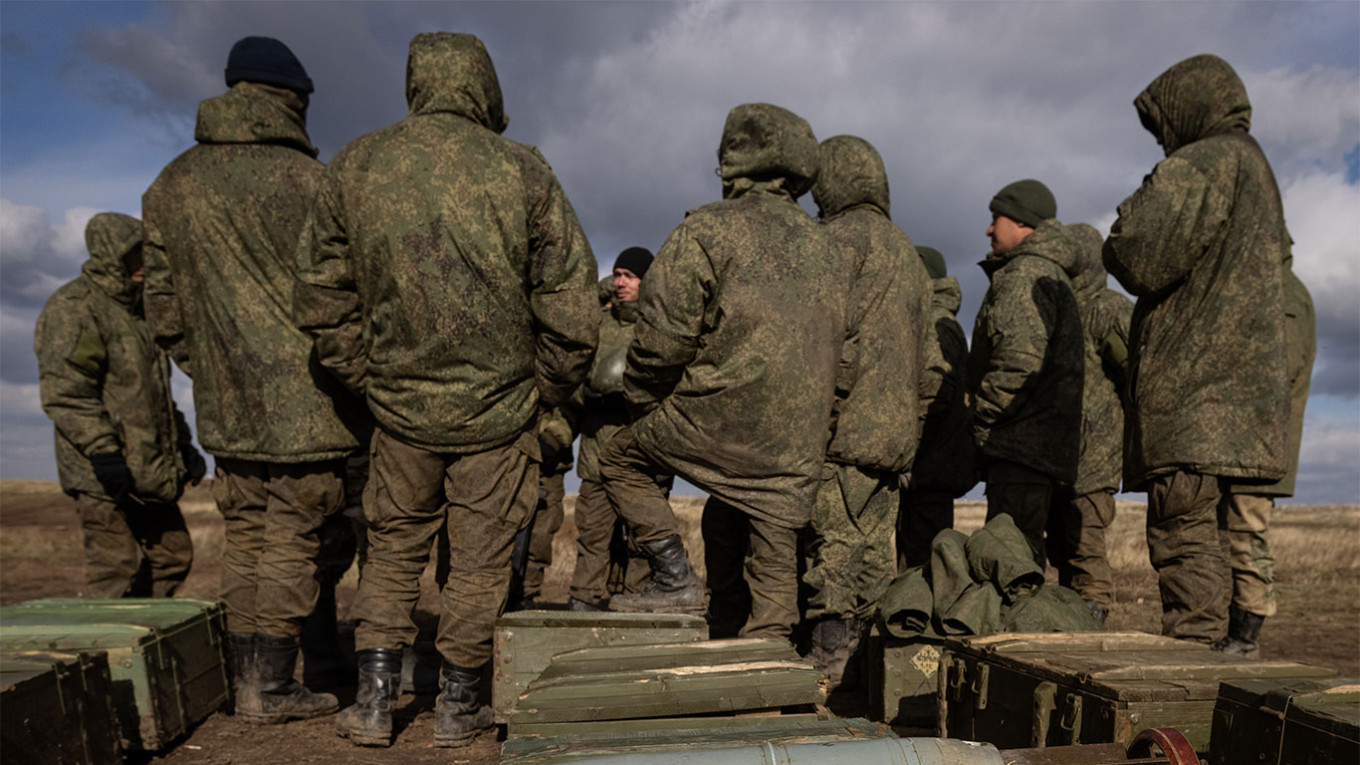
“The draftees did not know where the unit commander, battalion commander and regiment commander were,” Karavanov said in a social media post earlier this month about his trip.
“They didn’t have any communication equipment, tents or other shelter from bad weather.”
Amid the outcry, officials have taken some steps to calm relatives’ fears, with Defense Minister Sergei Shoigu saying in a televised speech last week that “only military personnel with skills that match their military specialties should be sent to the frontlines.”
Several regional governors have also met with family members.
“I share their pain and anxiety. I will do everything I can to provide maximum support,” Kursk region Governor Roman Starovoit wrote in a Telegram post following one such meeting.
But while there have been some cases of mobilized men withdrawn from the frontline, the military has also not shied away from punishing those who question orders.
One mobilized soldier seen berating his commander for a training program’s inadequacies in a video leaked last week has been charged with insulting an officer and now faces up to 15 years in prison, the Ostorozhno Novosti Telegram channel reported Tuesday.
Despite the growing discontent, most of the relatives of soldiers fighting in Ukraine who spoke to The Moscow Times still said they are not opposed to Russia’s actions in Ukraine.
Kristina said she was “increasingly disappointed” with the government for “sending people to the slaughter,” but stopped short of naming names.
“It’s nobody's fault,” she said.
“Russia is a big country and Putin cannot keep track of everything.”
A Message from The Moscow Times:
Dear readers,
We are facing unprecedented challenges. Russia's Prosecutor General's Office has designated The Moscow Times as an "undesirable" organization, criminalizing our work and putting our staff at risk of prosecution. This follows our earlier unjust labeling as a "foreign agent."
These actions are direct attempts to silence independent journalism in Russia. The authorities claim our work "discredits the decisions of the Russian leadership." We see things differently: we strive to provide accurate, unbiased reporting on Russia.
We, the journalists of The Moscow Times, refuse to be silenced. But to continue our work, we need your help.
Your support, no matter how small, makes a world of difference. If you can, please support us monthly starting from just $2. It's quick to set up, and every contribution makes a significant impact.
By supporting The Moscow Times, you're defending open, independent journalism in the face of repression. Thank you for standing with us.
Remind me later.



